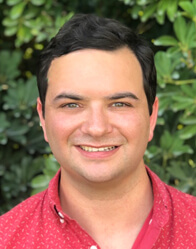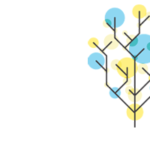Season 1 – Episode 19: Doctoral and Graduate Student Advising
Navigating the doctoral and graduate student advising process can be beneficial and challenging for both students and faculty members. While advisors and students can share many similarities, differences still often exist within their academic relationship. The academic relationship between a student and their advisor can shape a student’s academic experience and influence future career pathways. Currently, multiple resources are available to learn more about working with academic advisors, including CITI Program’s Managing Conflict with Your Dissertation Chair webinar.
Episode Transcript
Click to expand/collapse
Darren Gaddis: From CITI Program, I’m Darren Gaddis. And this is On Campus. Today, how is student advising different for undergraduate, graduate, and doctoral students? What ways can faculty better advise graduate and doctoral students? And how can students navigate their relationship with their faculty advisor? I spoke with Jesse Ford, Assistant Professor of Higher Education in the Department of Teacher Education in Higher Education at the University of North Carolina at Greensboro.
Darren Gaddis: As a reminder, this podcast is for educational purposes only. It is not intended to provide legal advice or guidance. You should consult with your organization’s attorneys if you have questions or concerns about relevant laws and regulations in this podcast. Additionally, the views expressed in this podcast are solely those of the presenter.
Darren Gaddis: Hi, Jesse. How are you today?
Jesse Ford: Hi, Darren. Thank you for having me in space. Looking forward to engaging in this conversation with you.
Darren Gaddis: Jesse, it’s a pleasure to have you here. To get us started, how is student advising different for undergraduate, graduate, and even doctoral students?
Jesse Ford: I think when you think about advising, I think we are all trying to figure out how to do it. It’s this idea that it has to be some grandiose thing. But the reality is, whether it’s undergraduate students, graduate students, doctoral students, the populations change, but the methods that we use to advise students remains the same. Some of us need to talk about coursework with students. Some of us are trying to talk about degree completion, but it’s all interconnected in how we support students. That’s the job. That’s what we’re supposed to do. We are supposed to help students figure out their next pathways within the process. And so, whether you’re working with undergraduate students, graduate students, or doc students, the advising methods should not change. Therefore, there shouldn’t really be a difference. It should be how do I help or support you to become who you need to be once you leave my institution, college, or wherever else we are having this advising appointment or meeting.
Darren Gaddis: In thinking more specifically about graduate and doctoral student advising, what role do faculty members play in the advising process for these students?
Jesse Ford: When I think about graduate students and I think about doctoral students especially, it comes down to this idea of effective socialization, thinking about the process of being a graduate student. Typically, these students have gone through a four-year degree. This may be their second degree or third degree if they’ve gotten associates, gotten a couple bachelor’s degrees. But once you get to the graduate level, think about it as starting a career. You’re starting over in a lot of ways, and part of that is being a newcomer in space. And so, being a student over again in a new space, you’re trying to think about how you can do this process. And I go back to this idea of being an emerging scholar. We often don’t think about ourselves as emerging scholars when we’re doctoral students or graduate students, but we are creating opportunities for these individuals to grow, and develop, and establish who they are in the profession.
Jesse Ford: And so, when you’re a faculty member working with graduate students and doctoral students, you need to humanize the process, understanding that, for many of these people that are pursuing these advanced degrees, they’re coming back to school to get some new skills and some new training. And so, as a faculty member, how can I make sure that I’m providing the best experience to construct a relationship with this individual who’s looking for new skills? You do that through socialization, through mentorship, through providing professional development opportunities that are specific to your field to ensure that the student is able to do something that they weren’t able to do before. And sometimes that is through a course. Sometimes that could be through publication. That can be through a skill or a trade that you happen to have as a faculty member that you want to impart on the student. And so, primarily, as a faculty member working with doctoral students, graduate students, making sure that we’re taking close attention to our students needs and wants as they’re trying to figure out how they want to navigate their careers post-graduation.
Darren Gaddis: Thinking more about the role that faculty members play in graduate and doctoral student advising, how can faculty members advise students from backgrounds that are different than their own?
Jesse Ford: That’s a really good question. And I think, as a faculty member, I often ask this question to myself, right? I think there is a need to remember identity and the importance of that within every conversation with students, not only the student’s identity, but your own. And so, taking time to reflect on who you are, your personal values, how you see yourself, and how you think about the work, whether that is working with students, or whether that is helping students develop competencies for their next job, or moving through a doctoral or graduate program.
Jesse Ford: The second thing I would name especially right now is we’re thinking about COVID-19, monkeypox, the unrest that is currently happening in our country. We have to think about how these social constructs are impacting students, not only at work, but also in school, and then, subsequently, at home. And so, understanding that all of these things are at factors as students are trying to navigate space and navigate our educational communities.
Jesse Ford: The last thing is that I would really lean into this idea of you have to meet students where they are. We say that a lot in higher education, but I think there’s something to be said about understanding that you may have a student that is a parent that works nine to five, is getting their degree from six to 10:00 PM in class and then going home to do work to prepare their student for the next day, and so there’s this process of trying to figure out essentially how to do all of it and manage it all. We, as people, have to think about different perspectives. And I would even lean in a little bit more as we think about our marginalized students who we know historically are battling challenges that aren’t necessarily talked about in the dominant conversation around students and student involvement, whether that’s issues of race and racism, classism, sexism. They are the isms of our society that are impacting these students differently.
Jesse Ford: And so, I always start advising meetings and conversations with students with a simple, “Hey, how are you?” To disarm them before we even start the conversation about the advising things that they may need within their day-to-day to progress in their graduate program. I think there’s something to be said about connecting with students, and we do that by learning their stories.
Darren Gaddis: Jesse, recognizing that a lot of graduate students and even doctoral students might have been out of school for a substantial amount of time between undergraduate and when they’ve decided to go back to school, what support structures can faculty members provide graduate and doctoral students with?
Jesse Ford: I always encourage faculty staff and others that are working with students to have conversations with students. And I go back to this notion of you have to know your students. We can no longer see advising and community support as transactional processes. These are no longer prescriptive processes. These are transformative processes. And so, what I mean by that is we no longer need to sit down with students and ask them, “What classes did you take this semester? What classes do you want to take next semester? This is what you need to graduate, so you have to take this class.” It must be much more deeper than that because our society has compounded them with so much that it is no longer simply, “Do you want to take this class anymore?” It is, “You need to take this class or consider this class because it will impact, not only how you think about your work, but subsequently skills that you may need in the future.”
Jesse Ford: We must think about the process as developing the whole student. And so, having conversations with them about how this could impact your future, how you could take from this course to pieces that you need to propel your career. It is no longer a conversation of you need to do this because, but it becomes a conversation of you need to do this so you can propel yourself into the next part of your journey or your career.
Darren Gaddis: With all the information that you shared with us today, Jesse, what advice do you have for new graduate and doctoral students who might be trying to figure out how to navigate their working relationship with their faculty advisor?
Jesse Ford: For graduate students that are trying to figure out how to develop or maintain relationships with their advisors, sometimes it’s as simple as asking questions. And it doesn’t necessarily need to be about the work. We often think that I need to go and ask my advisor or my faculty member about their scholarship or about how I can better take be in a class or take a class or what that process means. I think, for me, thinking back in my own doctoral journey, the most impactful conversations were, how do you do this? How do you manage your career? What are the processes that you navigated? What training have you done to be a good faculty member? I think, oftentimes, we forget that folks are happy to talk about their path and their journey, but oftentimes, as students, we sometimes don’t feel comfortable doing that.
Jesse Ford: And I think on the other side of that, faculty can lean into like, “This was my path, this was my journey. This is how I got here.” But I also think there’s space to say, “This is what I did that may not have worked well for me, but could work for you, or I made the choice to do this with my life. This was my professional journey. It doesn’t have to be yours.” I think there’s something to be said about creating spaces where there is open and honest dialogue.
Darren Gaddis: What else do we need to know?
Jesse Ford: I think when it comes to this conversation on advising, it all comes back to building relationships. We talk about building relationships in every aspect of our lives, from our parental relationships to our romantic relationships, to our work relationships. This should be seen no differently. You have to put time into developing relationships. Even if this is a school advising relationship, it can help propel the next parts of your journey and your career if you’re a student. And as a faculty member or a person that does advising with students, it helps you build rapport and helps students feel like they’re comfortable or can be comfortable coming to you with issues or problems.
Jesse Ford: Relationship building is so critical to the concept of advising that if we don’t do that well, then I question whether we’re doing our jobs well because you can go down the traditional methods of this is the class you should take and this is why, but if you don’t know the student, can you really say that this is the class that they should take and this is why? I do get that there are some things that students just have to do. It’s a part of the intellectual process of growth, but where you can, as a faculty member, support students to help them think about their lifelong trajectories. You should. And so, above all of this, I would say that relationship building and formation, collaboration and holistic development are the most important parts of student advising.
Darren Gaddis: Jesse, thank you for joining me today.
Jesse Ford: Thank you for having me.
Darren Gaddis: Be sure to follow, like, and subscribe to On Campus with CITI Program to stay in the know. I also invite you to review our content offerings regularly as we are continually adding new courses and webinars that may be of interest to you. All of our content is available to you anytime through organizational and individual subscriptions.
How to Listen and Subscribe to the Podcast
You can find On Campus with CITI Program available from several of the most popular podcast services. Subscribe on your favorite platform to receive updates when episodes are newly released. You can also subscribe to this podcast, by pasting “https://feeds.buzzsprout.com/1896915.rss” into your your podcast apps.
Recent Episodes
- Season 1 – Episode 18: Accommodations in Online Learning
- Season 1 – Episode 17: Instructional Designer for Online Learners
- Season 1 – Episode 16: Leading an Academic Department
- Season 1 – Episode 15: Student Privacy: Higher Education
Meet the Guest

Jesse Ford, PhD – University of North Carolina at Greensboro
Jesse R. Ford, PhD serves as an Assistant Professor of Higher Education in the Department of Teacher Education and Higher Education at the University of North Carolina at Greensboro. His research investigates the experiences of understudied populations through culturally responsive frameworks in education.
Meet the Host
Darren Gaddis, Host, On Campus Podcast – CITI Program
He is the host of the CITI Program’s higher education podcast. Mr. Gaddis received his BA from University of North Florida, MA from The George Washington University, and is currently a doctoral student at Florida State University.








